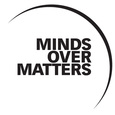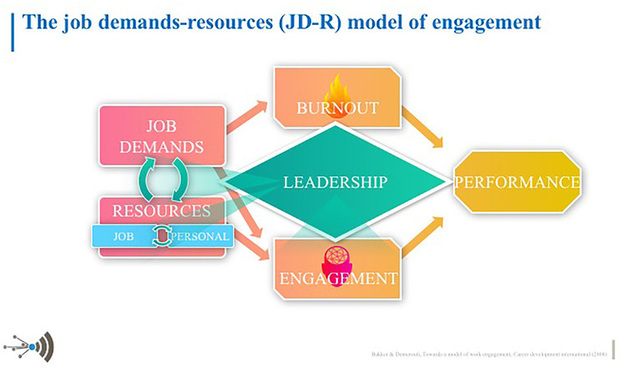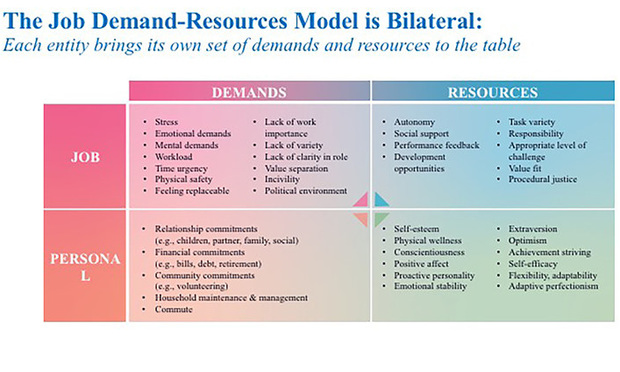Lawyer Well-Being at Work: It's a Two-Way Street
It's not the number of hours we're billing or the number of hours we're working; it's the way we feel about how we spend those hours that matters.
December 11, 2019 at 03:00 PM
7 minute read
 Photo: Shutterstock
Photo: Shutterstock
 When I speak at law firms about enhancing the well-being of their lawyers and professional staff, the vast majority of the people in the audience are interested about the topic and appreciative that their firm is taking an interest in how to help them thrive.
When I speak at law firms about enhancing the well-being of their lawyers and professional staff, the vast majority of the people in the audience are interested about the topic and appreciative that their firm is taking an interest in how to help them thrive.
But lawyers are lawyers—we're skeptics at heart.
So inevitably someone will raise a hand, or grab me during a break, and say something like this: "Thanks for being here, but isn't this just the latest way to try to squeeze more out of me? If you want my well-being to be better, why don't you get rid of the 2,000 billable hour requirement? That would help my well-being."
It's an understandable question. Lawyers work hard, and case loads can feel overwhelming. Working long hours, tracking those hours and feeling that we have to grind all year to hit a specific number of hours to meet a profitability target can make us feel like fungible, dehumanized automatons rather than highly trained providers of specific and thoughtful solutions to complex legal challenges. It all can contribute to burnout—a toxic blend of physical and emotional exhaustion, cynicism and a lack of control or ability to change things.
So yes, billable hours are a drag, and profitability requirements don't do great things for our "chi," what Asian religions call the harmonic life force that connects us to the universe. But most of the time, the long hours aren't really the core issue.
While there are obvious outlier scenarios (no one can work 200, 20-hour days in a row and maintain a consistent level of energy), researchers have found that lawyers who work long hours each week report the same levels of self-satisfaction about their work as lawyers who work considerably fewer hours each week. It's not the number of hours we're billing, or the number of hours we're working; it's the way we feel about how we spend those hours that matters.
When our response to a well-being speaker is a question about whether the firm is trying to squeeze more out of us, the underlying issue may be that the firm is not engaging us in our work.
Engagement is almost the complete opposite of burnout. Where burnout is cynical, exhausted and overwhelmed, engagement is energetic, dedicated and absorbed. Engaged lawyers have a sense of pride in their work and their organization, and puff out their chests a little when they say where they work. They say good things about the organization to colleagues and outsiders, they stay at the firm even if they have offers to leave, and they strive to go the extra mile to help the organization and their colleagues be successful.
Businesses that increase employee engagement have experienced increased sales, better customer service and customer satisfaction, increased revenue and profits, better individual job performance, increased retention and reduced turnover.
It's pretty straightforward, actually. When we are engaged in, and engaged by our work, we'll "say, stay and strive." If not, we'll burn out and leave, and we may ruin a few client and work relationships along the way.
Instead of an Upton Sinclair novel where owners try to squeeze the last drop of sweat for your fungible brow, a smart employer will want you to feel more engaged so that you willingly and happily bring more of your energy to work. That helps both you and your organization.
So how do we help you to feel more engaged?
At its core, engagement results from a positive relationship between an individual and an employer. And like any other relationship, it's a two-way street that requires mutual communication, mutual recognition and mutual regard. Psychologists have been studying engagement for decades, and what has emerged is the Job Demands-Resources Model, which looks like this:

Your job can be divided into resources and demands. Resources are aspects of your job that give you energy and strength, like the satisfaction you get from being part of a really supportive team, or the happiness you get from writing a great brief, or helping a valued client think through a tricky legal problem. Demands are things that can help your energy, like the feeling of triumph you get when you win after a grueling trial, or sap your energy, like excess workloads or an environment where people are condescending. (A list of job demands and resources are set forth in the diagram below.)
If your job resources outweigh your job demands, you'll tend to be more engaged, and that energy will help you perform better. If the demands outweigh the resources, you'll lack the energy to do well, you'll tend towards burnout, and your performance is likely to suffer.
But the demands on our time and the resources we need to thrive at work are not entirely organizational. A lot of our energy comes from within: our attitude, our skills and our style of work, as well as whatever else is going on in our lives outside of work. Examples of these personal resources and demands are also set forth below.

At the end of the day, both the employee and the organization have a responsibility to try to maximize the resources and minimize the demands. The organization does this by communicating to its employees, listening to their concerns, and working to provide resources and reduce demands where it can. Employees do this by explaining what their challenges are, and by doing things outside of work that help them walk in to work with enthusiasm and energy.
Engagement won't occur without mutual communication and effort. As an attorney, you need to come to work prepared to do your job. But if there are things that either of us can control that will help you do that, we should talk about them.
If you feel you aren't getting enough clarity about your role, or there is training that you think will enhance your ability to succeed in that role, let's talk about that. If that training is expensive and takes you out of the office for extended periods of time, how can we best manage that? Are you having back problems that affect your ability to work? OK, we'll supply the standing desk and you commit to physical therapy. Are you unhappy with the actions of a colleague? Let's discuss appropriate ways to approach that conflict that will maximize the likelihood of a positive resolution and a shared sense of community, whatever the result. Are you having a major curveball in your personal life? Tell me what you're comfortable telling me, and let's see how we can help you during this limited period of challenge without damaging our responsibilities to our clients.
When we think about engagement as a two-way street, it changes the nature of the conversation. Managers should be aware that certain people and certain personality types are more prone to see things in a negative and cynical light. These people will need a little more patience and persistence in seeing the positive things that the organization is doing. On the other hand, these people can and should be working on improving their social networks within the firm by extending themselves to assist their colleagues.
Doing so will make the provision of support in times of high work or personal stress much more rapid, efficient and effective.
Read more – Minds Over Matters: An Examination of Mental Health in the Legal Profession
John F. Hollway is associate dean at University of Pennsylvania Carey Law School and executive director of the Quattrone Center for the Fair Administration of Justice. He is also a member of Law.com's Minds Over Matters advisory board.
NOT FOR REPRINT
© 2025 ALM Global, LLC, All Rights Reserved. Request academic re-use from www.copyright.com. All other uses, submit a request to [email protected]. For more information visit Asset & Logo Licensing.
You Might Like
View All
Change Is Coming in the Trump Era. For Big Law, Change Is Already Here
6 minute read

'If the Job Is Better, You Get Better': Chief District Judge Discusses Overcoming Negative Perceptions During Q&A

The Growing Antitrust Scrutiny of DraftKings and FanDuel
Trending Stories
- 1Departing Attorneys Sue Their Former Law Firm
- 2Pa. High Court: Concrete Proof Not Needed to Weigh Grounds for Preliminary Injunction Order
- 3'Something Else Is Coming': DOGE Established, but With Limited Scope
- 4Polsinelli Picks Up Corporate Health Care Partner From Greenberg Traurig in LA
- 5Kirkland Lands in Phila., but Rate Pressure May Limit the High-Flying Firm's Growth Prospects
Who Got The Work
J. Brugh Lower of Gibbons has entered an appearance for industrial equipment supplier Devco Corporation in a pending trademark infringement lawsuit. The suit, accusing the defendant of selling knock-off Graco products, was filed Dec. 18 in New Jersey District Court by Rivkin Radler on behalf of Graco Inc. and Graco Minnesota. The case, assigned to U.S. District Judge Zahid N. Quraishi, is 3:24-cv-11294, Graco Inc. et al v. Devco Corporation.
Who Got The Work
Rebecca Maller-Stein and Kent A. Yalowitz of Arnold & Porter Kaye Scholer have entered their appearances for Hanaco Venture Capital and its executives, Lior Prosor and David Frankel, in a pending securities lawsuit. The action, filed on Dec. 24 in New York Southern District Court by Zell, Aron & Co. on behalf of Goldeneye Advisors, accuses the defendants of negligently and fraudulently managing the plaintiff's $1 million investment. The case, assigned to U.S. District Judge Vernon S. Broderick, is 1:24-cv-09918, Goldeneye Advisors, LLC v. Hanaco Venture Capital, Ltd. et al.
Who Got The Work
Attorneys from A&O Shearman has stepped in as defense counsel for Toronto-Dominion Bank and other defendants in a pending securities class action. The suit, filed Dec. 11 in New York Southern District Court by Bleichmar Fonti & Auld, accuses the defendants of concealing the bank's 'pervasive' deficiencies in regards to its compliance with the Bank Secrecy Act and the quality of its anti-money laundering controls. The case, assigned to U.S. District Judge Arun Subramanian, is 1:24-cv-09445, Gonzalez v. The Toronto-Dominion Bank et al.
Who Got The Work
Crown Castle International, a Pennsylvania company providing shared communications infrastructure, has turned to Luke D. Wolf of Gordon Rees Scully Mansukhani to fend off a pending breach-of-contract lawsuit. The court action, filed Nov. 25 in Michigan Eastern District Court by Hooper Hathaway PC on behalf of The Town Residences LLC, accuses Crown Castle of failing to transfer approximately $30,000 in utility payments from T-Mobile in breach of a roof-top lease and assignment agreement. The case, assigned to U.S. District Judge Susan K. Declercq, is 2:24-cv-13131, The Town Residences LLC v. T-Mobile US, Inc. et al.
Who Got The Work
Wilfred P. Coronato and Daniel M. Schwartz of McCarter & English have stepped in as defense counsel to Electrolux Home Products Inc. in a pending product liability lawsuit. The court action, filed Nov. 26 in New York Eastern District Court by Poulos Lopiccolo PC and Nagel Rice LLP on behalf of David Stern, alleges that the defendant's refrigerators’ drawers and shelving repeatedly break and fall apart within months after purchase. The case, assigned to U.S. District Judge Joan M. Azrack, is 2:24-cv-08204, Stern v. Electrolux Home Products, Inc.
Featured Firms
Law Offices of Gary Martin Hays & Associates, P.C.
(470) 294-1674
Law Offices of Mark E. Salomone
(857) 444-6468
Smith & Hassler
(713) 739-1250








